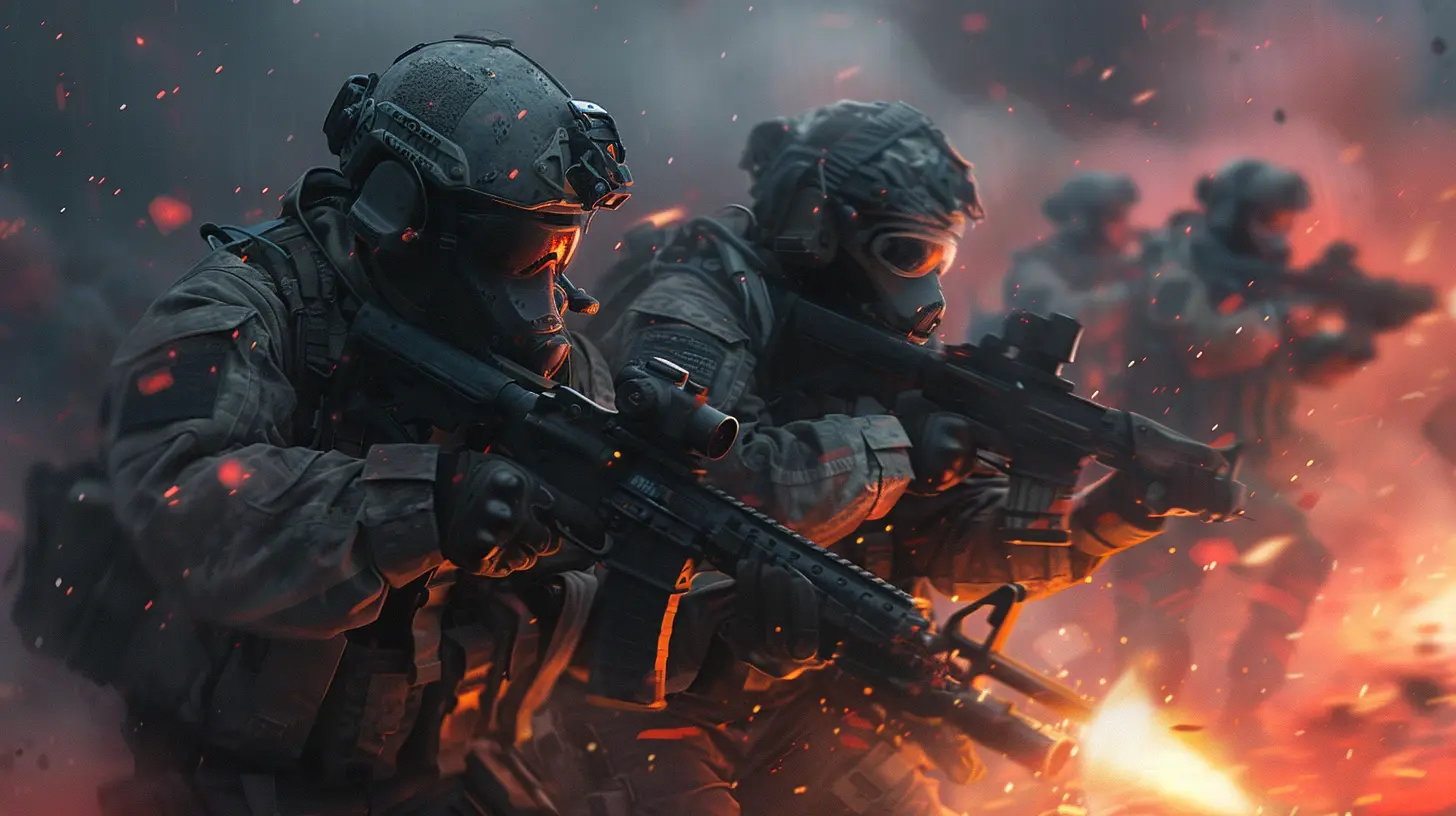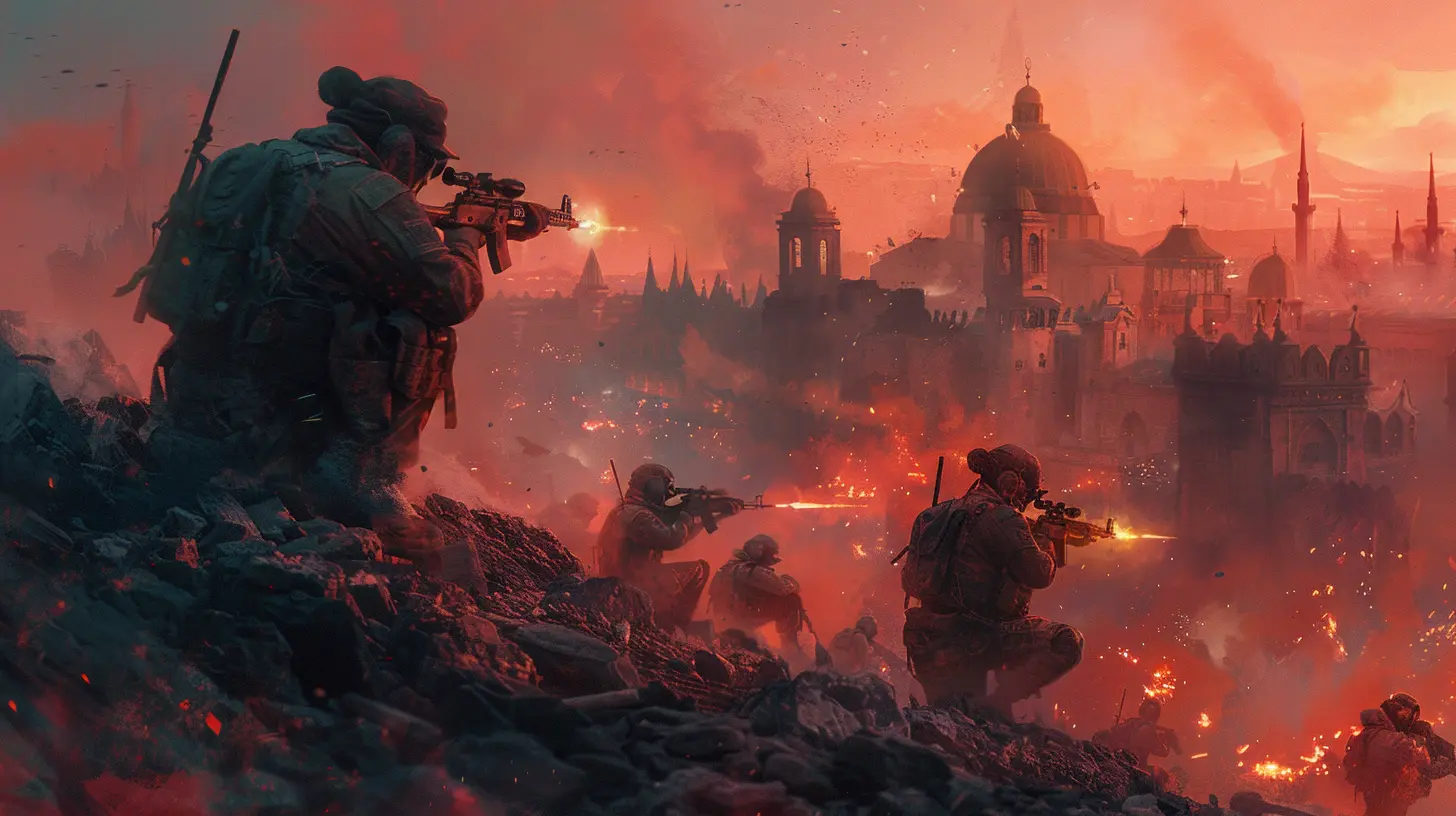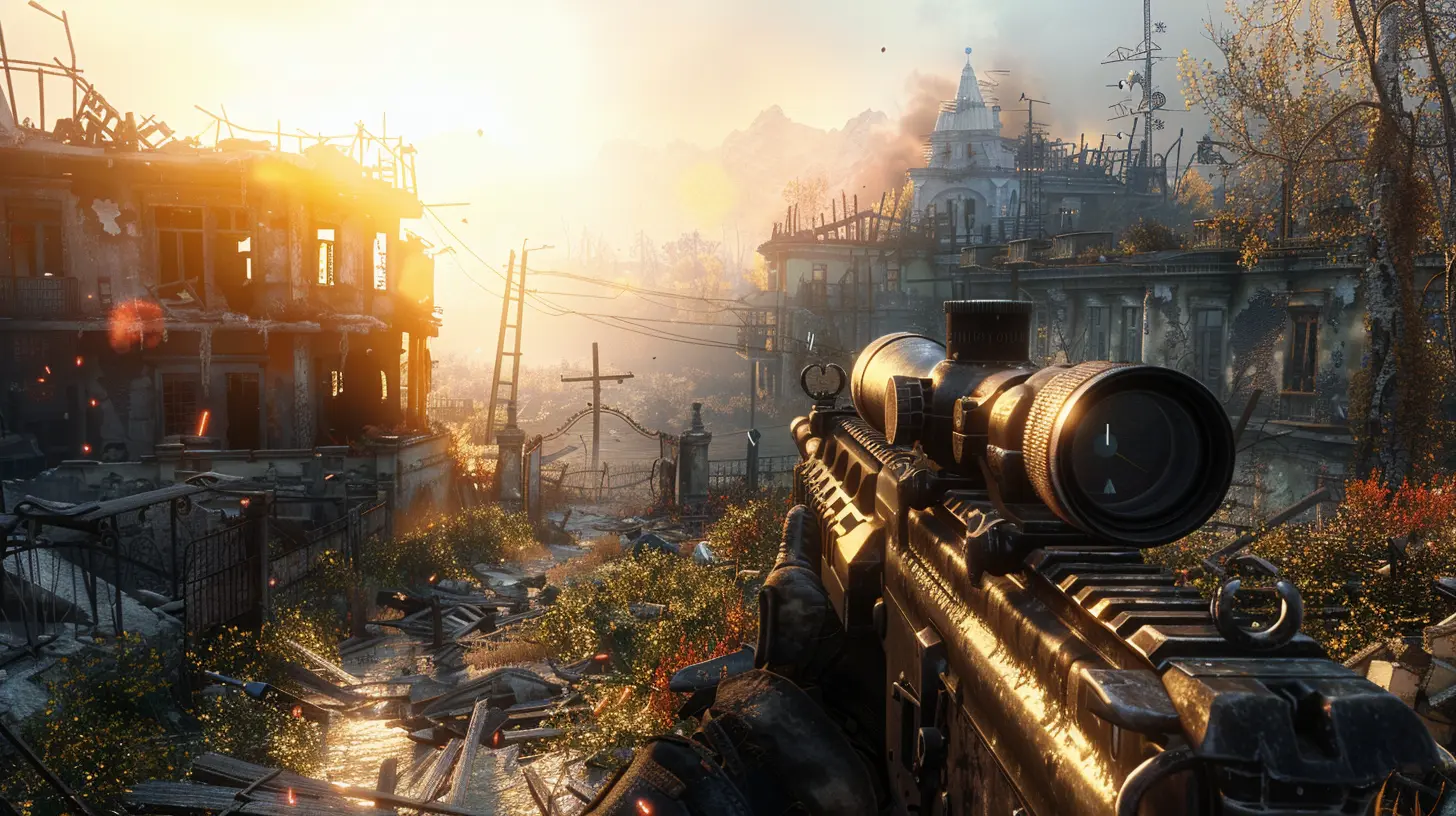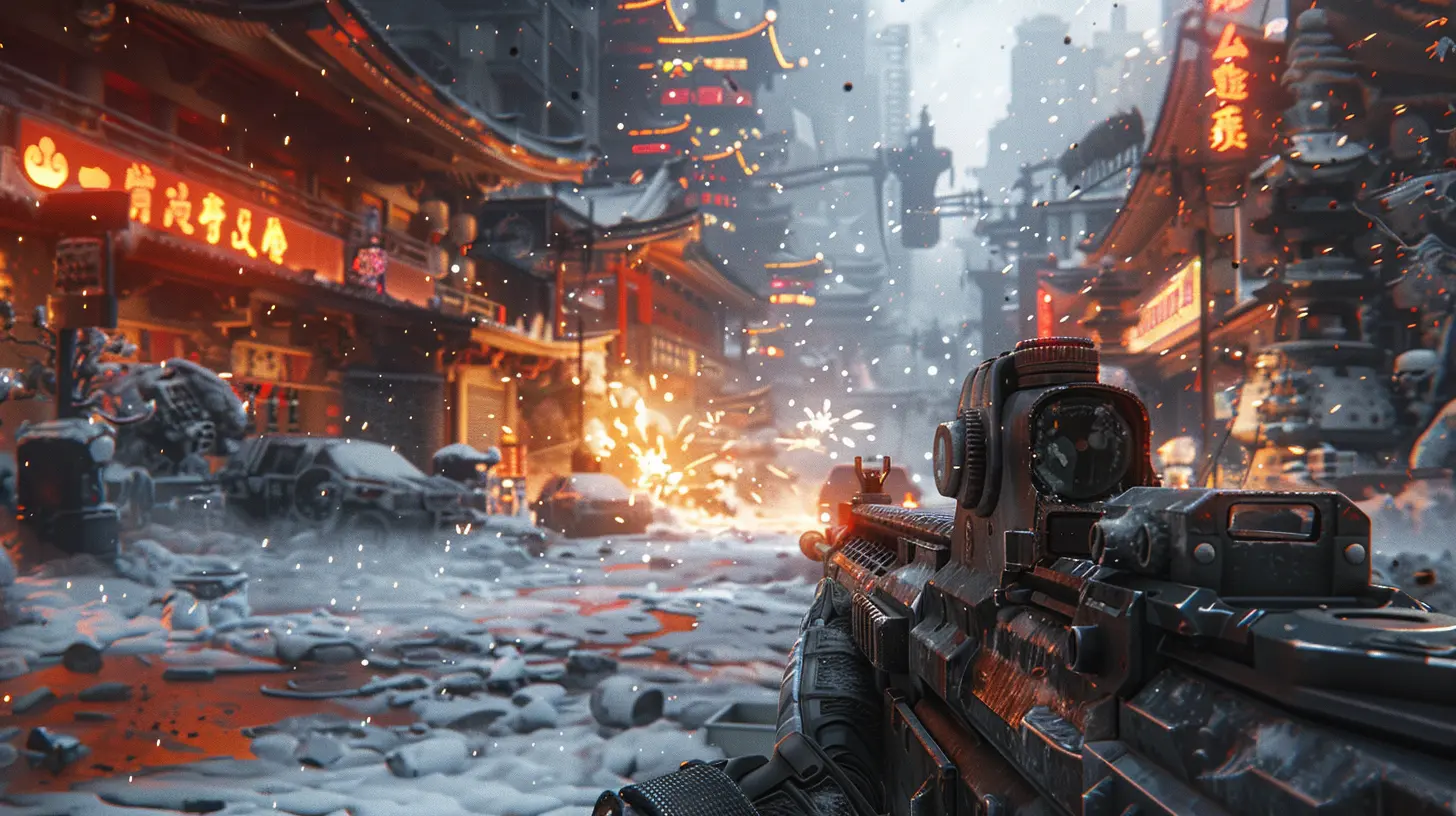How Shooter Games Shape the Future of Online Multiplayer
6 September 2025
Shooter games have always had a special place in the heart of online multiplayer. Whether it's the intense action, the fast-paced gameplay, or the adrenaline rush that comes with every round—you just can’t deny their influence. But here's the real deal: shooter games are doing more than just entertaining us. They’re paving the way for what online multiplayer looks like now and what it will become in the future.
Yeah, you read that right. Let’s dive into exactly how shooter games are driving the evolution of online multiplayer and why you should care about it—even if you’re not a die-hard fan of FPS titles.

The Evolution of Shooter Games: From Pixels to Virtual Battlefields
Shooter games didn’t start off all guns blazing. Back in the day, we had pixelated titles like Doom and Wolfenstein 3D. They were revolutionary for their time, sure. But they were mostly solo experiences.Then came the real game changers—Counter-Strike, Call of Duty, Halo. These powerhouses flipped the script. They introduced tight team mechanics, competitive landscapes, and real-time action that demanded split-second decisions and top-tier coordination.
Now, we’re talking about games like Valorant, Apex Legends, and Call of Duty: Warzone. These aren’t just games—they’re ecosystems. They involve digital economies, esports leagues, real-time voice chat, and even AI-integrated matchmaking.
Shooter games have gone from pixelated playrooms to ultra-realistic battlegrounds where millions log in daily. And with each upgrade, they push the boundaries of what online multiplayer can be.

Real-Time Communication: The Backbone of Team-Based Multiplayer
One of the biggest ways shooter games are influencing online multiplayer is through communication systems. Let’s face it—if you've played a team-based shooter without voice chat, it feels like trying to win a soccer match without talking to your teammates. Impossible, right?Games like Rainbow Six Siege and Overwatch require constant communication and coordination. Players share callouts, strategies, and warnings in real time. And developers have taken that demand seriously.
Today’s shooters are fitted with built-in voice chat, ping systems for non-verbal players, and even AI-powered communication tools. This tech isn’t just making shooter games better—it’s spilling over into other genres. MMORPGs, MOBAs, even casual co-op games are adopting these real-time communication features.
So yeah, you can thank shooter games the next time your cozy farming sim lets you ping a teammate for help.

Cross-Platform Play: The Death of Console Wars?
Remember when console choice meant everything? You were either Team Xbox, PlayStation, or PC—and your friends’ choices directly affected who you could play with. Those days are fading fast, and shooter games are leading that charge.Titles like Call of Duty: Warzone, Fortnite, and Apex Legends shattered those old boundaries with full cross-platform support. PC players can now go head-to-head with console users in the same lobby, syncing up voice chat and squad roles without a hitch.
The result? A more unified gaming community.
Cross-platform play is now a standard players expect from every new multiplayer title—and shooter games made it popular. They didn’t just open the door—they kicked it down.

Competitive Esports: Shooter Games Built the Arena
Here’s a bold truth: if battle arenas are the future of online multiplayer, then shooter games built the foundation.Esports wouldn't be booming if it weren’t for the likes of Counter-Strike: Global Offensive, Overwatch, and Valorant. These games created rule sets, spectator modes, and ranking systems that are now emulated by genres across the board.
Shooters offer the perfect blend of skill, strategy, and spectacle, making them ideal for esports. Developers now design multiplayer games with streaming and esports in mind, thanks to the blueprint laid down by shooter franchises. They’re shaping how we watch games, not just how we play them.
And with Twitch, YouTube Gaming, and live tournaments with million-dollar prize pools, shooter games aren’t just defining online multiplayer—they’re making it a global event.
Technological Innovation: Pushing Hardware & Software Limits
Shooter games are some of the most demanding games out there. High frame rates, low latency, realistic graphics—players expect nothing less. That demand pushes tech companies to innovate.Take Nvidia’s Reflex and DLSS technologies. These weren’t just developed in a vacuum—they were created to meet the needs of competitive shooter players who need every millisecond advantage.
And it doesn’t stop with visuals. Server technology, anti-cheat systems, VR experiments—shooter games test it all. Every bit of lag matters in a firefight, so servers are optimized to near perfection. Shooter games are like the Formula 1 of the gaming world—they push everything to the max and the entire industry reaps the benefits.
User-Generated Content: Community Maps and Mods
Shooters have empowered their players to create. Think of Counter-Strike custom maps, Call of Duty zombie mods, or Halo’s Forge mode. These community-made elements fuel creativity and extend a game’s lifespan like crazy.More importantly, they teach developers a lesson: people want to contribute to the worlds they love.
Now, games across genres have embraced user-generated content. Why? Because they watched how shooter games thrived with it first.
So if you’re building your dream dungeon in a fantasy MMO or designing levels in a mobile puzzler, a shooter game likely paved the way.
Battle Royale: A Genre Exploded by Shooters
Let’s talk about the elephant in the room—Battle Royale. It’s arguably the most popular multiplayer format of the last decade. And yep, it was shooter games that took it mainstream.PUBG was the match that lit the fire, but Fortnite turned it into a cultural phenomenon. Then Apex Legends jumped in with movement fluidity and hero mechanics, cranking things up even further.
Battle Royale combined survival, exploration, crafting, and shooting mechanics into one intense, heart-racing genre. What started as a shooter game mode is now a genre in itself—and it's influencing RPGs, strategy games, and even sports titles.
All thanks to shooters showing just how far the format could go.
Social Hubs and Virtual Identities
Today’s shooter games aren’t just about matches—they’re becoming social spaces. Think of Call of Duty Hub Worlds, Fortnite’s cinematic live events, or Valorant’s growing lore and community engagement tools. Players aren’t just there to shoot—they’re building social identities.Shooter games are blending gameplay with community. It's not just about KD ratios anymore. It’s about skins, emotes, badges, ranks, and storylines. Your avatar becomes a version of yourself—a virtual persona.
This shift is turning online multiplayer into more than just gaming. It’s becoming a kind of digital lifestyle. Once again, shooter games are leading the charge.
AI & Matchmaking: Smarter, Fairer Games
What’s more annoying than a lobby full of smurfs or cheaters? Not much.Shooter games are constantly experimenting with smart matchmaking algorithms and AI that balances gameplay across skill levels. Whether it’s detecting toxic behavior, spotting cheaters in real-time, or using bots to fill teams intelligently, shooter developers are investing heavily in fair play.
This tech is being adopted by many other multiplayer genres. Why? Because shooter game communities are often the most competitive and vocal. If something matters in a shooter, it eventually becomes an industry standard.
The Metaverse and Beyond: The Future Isn’t That Far Off
You’ve probably heard the buzzword—Metaverse. Shooter games are already inching their way into that concept. Fortnite doesn’t just host shootouts; it hosts concerts, movie nights, and storytelling events. It’s a world, not just a game.We're not saying shooters will become the Metaverse, but they’re laying the infrastructure for it. Persistent worlds, live events, social hangouts, virtual economies—shooters are experimenting with all of it.
The future of online multiplayer will be more immersive, more social, and more interactive. Shooter games are providing the blueprint.
Final Thoughts: Why Shooter Games Matter More Than Ever
So what’s the verdict?Shooter games have evolved from basic shoot-and-run play styles to become foundational pillars of online multiplayer. They’ve influenced how we communicate, compete, create, and connect. And as tech keeps growing, so will the influence of shooters.
Whether you're a seasoned FPS fanatic or someone who just hops into the occasional match with friends, the effects of shooter games on multiplayer are undeniable. They’re not just shaping the future—they are the future.
And hey, next time you jump into a multiplayer session—regardless of the genre—remember that a shooter game probably helped build that experience. Pretty cool, right?
all images in this post were generated using AI tools
Category:
Shooter GamesAuthor:

Aurora Sharpe
Discussion
rate this article
2 comments
Juliet Becker
Exciting insights! Shooter games are paving the future!
March 2, 2026 at 5:21 PM
Katie Flores
Shooter games are evolving rapidly, influencing multiplayer dynamics and player engagement, but their impact on community behavior needs careful consideration.
September 20, 2025 at 3:58 PM

Aurora Sharpe
Thank you for your insight! Indeed, as shooter games evolve, we must balance innovation with the responsibility of fostering positive community interactions.


